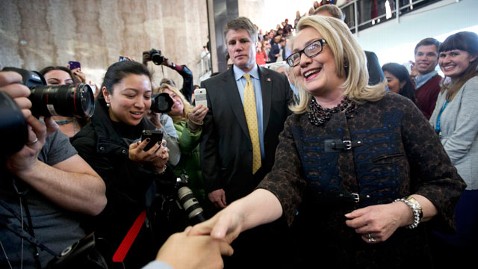ISTANBUL (Reuters) - A member of a Turkish leftist group that accuses Washington of using Turkey as its "slave" carried out a suicide bomb attack on the U.S. embassy, the Ankara governor's office cited DNA tests as showing on Saturday.
Ecevit Sanli, a member of the leftist Revolutionary People's Liberation Army-Front (DHKP-C), blew himself up in a perimeter gatehouse on Friday as he tried to enter the embassy, also killing a Turkish security guard.
The DHKP-C, virulently anti-American and listed as a terrorist organization by the United States and Turkey, claimed responsibility in a statement on the internet in which it said Turkish Prime Minister Tayyip Erdogan was a U.S. "puppet".
"Murderer America! You will not run away from people's rage," the statement on "The People's Cry" website said, next to a picture of Sanli wearing a black beret and military-style clothes and with an explosives belt around his waist.
It warned Erdogan that he too was a target.
Turkey is an important U.S. ally in the Middle East with common interests ranging from energy security to counter-terrorism. Leftist groups including the DHKP-C strongly oppose what they see as imperialist U.S. influence over their nation.
DNA tests confirmed that Sanli was the bomber, the Ankara governor's office said. It said he had fled Turkey a decade ago and was wanted by the authorities.
Born in 1973 in the Black Sea port city of Ordu, Sanli was jailed in 1997 for attacks on a police station and a military staff college in Istanbul, but his sentence was deferred after he fell sick during a hunger strike. He was never re-jailed.
Condemned to life in prison in 2002, he fled the country a year later, officials said. Interior Minister Muammer Guler said he had re-entered Turkey using false documents.
Erdogan, who said hours after the attack that the DHKP-C were responsible, met his interior and foreign ministers as well as the head of the army and state security service in Istanbul on Saturday to discuss the bombing.
Three people were detained in Istanbul and Ankara in connection with the attack, state broadcaster TRT said.
The White House condemned the bombing as an "act of terror", while the U.N. Security Council described it as a heinous act. U.S. officials said on Friday the DHKP-C were the main suspects but did not exclude other possibilities.
Islamist radicals, extreme left-wing groups, ultra-nationalists and Kurdish militants have all carried out attacks in Turkey in the past.
SYRIA
The DHKP-C statement called on Washington to remove Patriot missiles, due to go operational on Monday as part of a NATO defense system, from Turkish soil.
The missiles are being deployed alongside systems from Germany and the Netherlands to guard Turkey, a NATO member, against a spillover of the war in neighboring Syria.
"Our action is for the independence of our country, which has become a new slave of America," the statement said.
Turkey has been one of the leading advocates of foreign intervention to end the civil war in Syria and has become one of President Bashar al-Assad's harshest critics, a stance groups such as the DHKP-C view as submission to an imperialist agenda.
"Organizations of the sectarian sort like the DHKP-C have been gaining ground as a result of circumstances surrounding the Syrian civil war," security analyst Nihat Ali Ozcan wrote in a column in Turkey's Daily News.
The Ankara attack was the second on a U.S. mission in four months. On September 11, 2012, U.S. Ambassador Christopher Stevens and three American personnel were killed in an Islamist militant attack on the U.S. Consulate in Benghazi, Libya.
The DHKP-C was responsible for the assassination of two U.S. military contractors in the early 1990s in protest against the first Gulf War, and it fired rockets at the U.S. consulate in Istanbul in 1992, according to the U.S. State Department.
It has been blamed for previous suicide attacks, including one in 2001 that killed two police officers and a tourist in Istanbul's central Taksim Square. It has carried out a series of deadly attacks on police stations in the last six months.
Friday's attack may have come in retaliation for an operation against the DHKP-C last month in which Turkish police detained 85 people. A court subsequently remanded 38 of them in custody over links to the group.
(Writing by Nick Tattersall; Editing by Mark Heinrich)

















